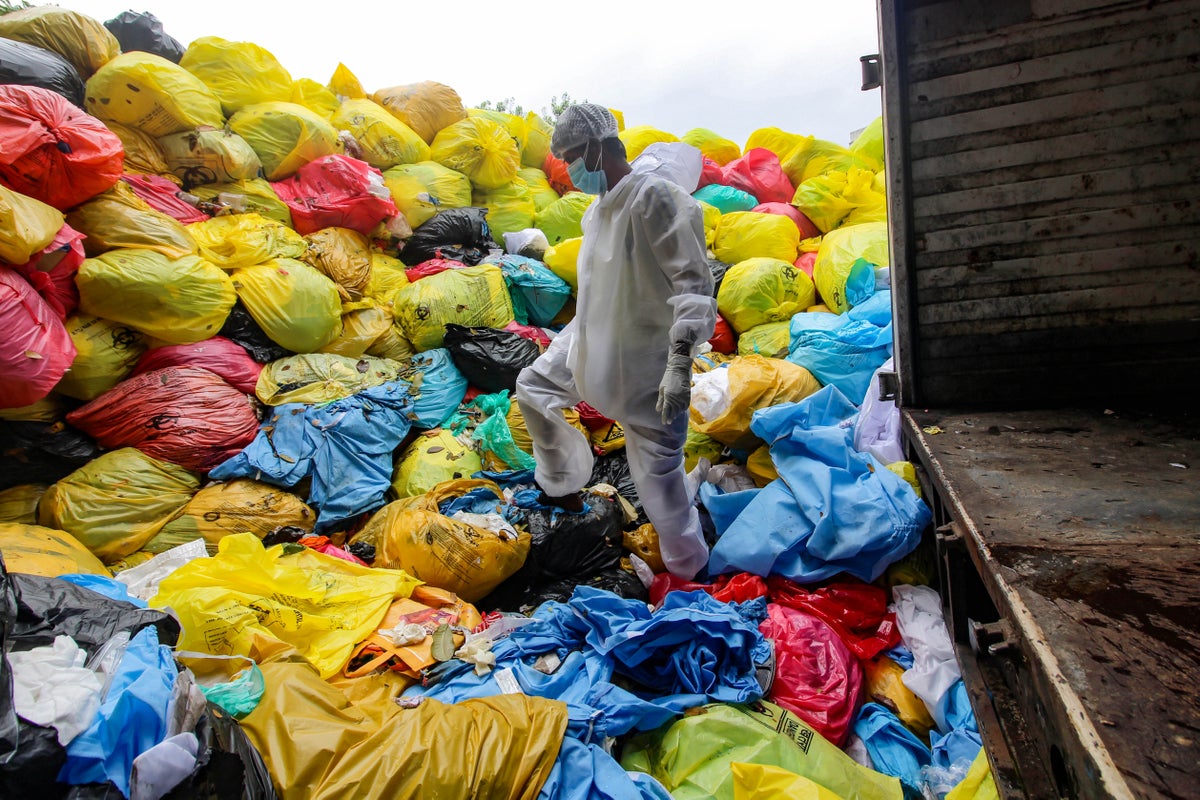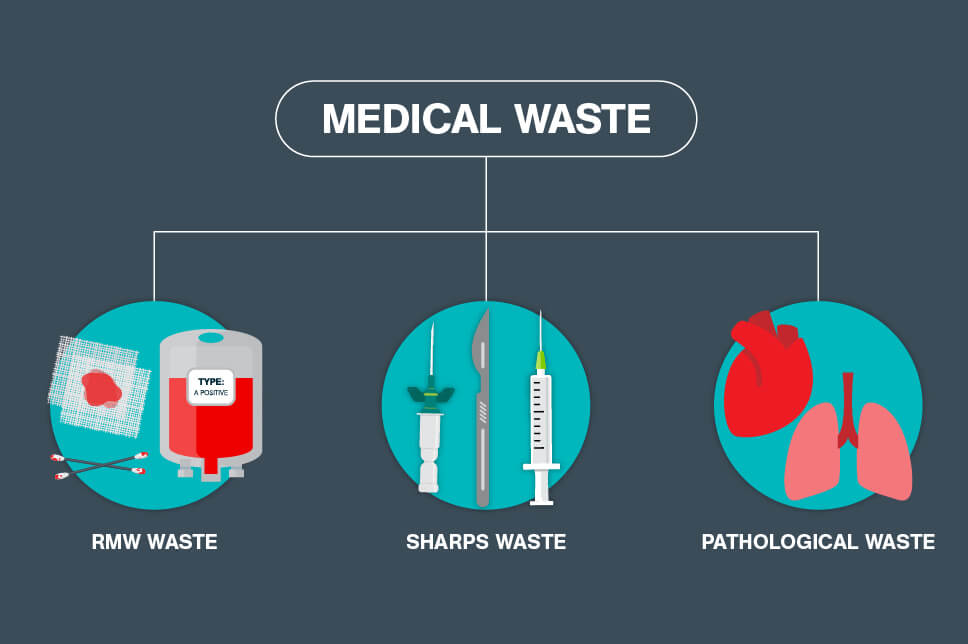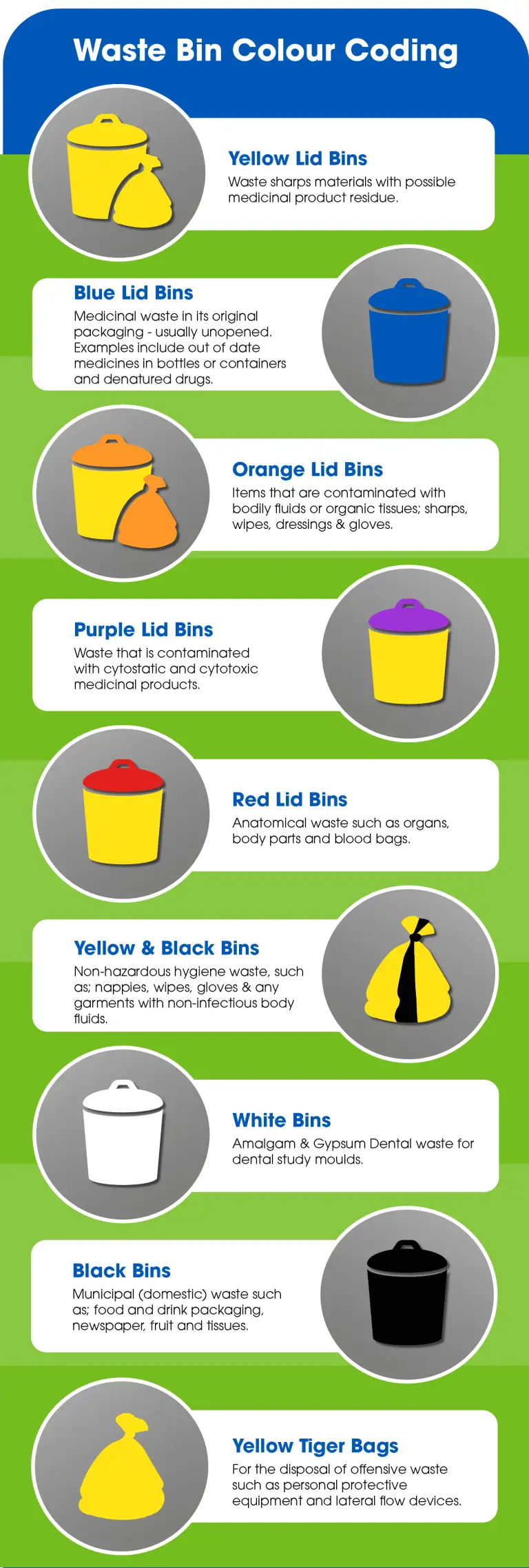Making Certain Safe Handling and Disposal of Medical Waste
Guaranteeing safe handling and disposal of clinical waste is of extremely important relevance in health care settings. Improper monitoring of clinical waste can position substantial threats to the setting, public health and wellness, and healthcare employees. In this intro, we will certainly check out the significance of correct clinical waste management, the threats linked with incorrect handling and disposal, as well as the guidelines and methods that can be executed to ensure its risk-free disposal.
Significance of Proper Clinical Waste Administration
Proper clinical waste management is of utmost relevance in making sure the safety and security and health of health care professionals, individuals, and the public. Clinical waste refers to any waste created by medical care facilities throughout the diagnosis, therapy, or booster shot of people or animals. This waste can position significant health and wellness threats if not taken care of and thrown away appropriately.
One of the main reasons that proper clinical waste monitoring is critical is to stop the spread of transmittable illness. Medical waste, such as utilized needles, infected dressings, and biological materials, can bring damaging virus. If not taken care of and thrown away appropriately, these microorganisms can be sent to medical care workers, clients, waste handlers, and also the public, resulting in the possible episode of conditions.
Furthermore, appropriate clinical waste monitoring aids safeguard the atmosphere - medical waste removal service. Medical waste consists of unsafe materials, including chemicals, pharmaceuticals, and contaminated compounds. When not handled properly, these compounds can pollute dirt, water bodies, and the air, posturing a significant risk to ecological communities and public health
Moreover, reliable clinical waste monitoring makes sure conformity with global requirements and neighborhood laws. Federal governments and governing bodies have actually developed protocols and guidelines to make certain the risk-free handling, storage, transport, and disposal of clinical waste. Abiding by these regulations is vital to stay clear of legal consequences and maintain the credibility and trustworthiness of healthcare centers.
Threats of Improper Handling and Disposal

People can also be exposed to these contagious illness if clinical waste is not correctly disposed of. If polluted needles or various other sharps are not disposed of in marked puncture-proof containers, they might unintentionally prick clients, leading to prospective infections. Moreover, if medical waste is not segregated effectively, there is a threat of cross-contamination in between various kinds of waste, additional boosting the opportunities of illness transmission.
Improper disposal of medical waste can likewise have damaging impacts on the atmosphere and the general public. If medical waste is not dealt with and gotten rid of correctly, it can contaminate water resources, dirt, and air, causing the spread of toxins and illness. This can have long-lasting consequences on communities and public health.
Standards for Safe Handling of Medical Waste
Carrying out efficient protocols for the risk-free handling of medical waste is essential in ensuring the defense of health care professionals, individuals, and the public. These guidelines are critical in lessening the risks connected with the handling and disposal of medical waste, such as infections, injuries, and environmental air pollution.
Primarily, healthcare centers need to establish a thorough waste monitoring plan that sticks to local, nationwide, and worldwide laws. This plan must include clear directions on waste segregation, packaging, storage space, labeling, and transportation. It is crucial to divide different kinds of waste, such as sharps, contagious products, pharmaceuticals, and non-hazardous waste, to prevent cross-contamination and promote secure disposal.
Additionally, health care personnel should obtain thorough training on appropriate waste handling strategies. They should be educated on the prospective dangers of medical waste, the suitable use of individual safety equipment (PPE), and the correct procedures for managing, moving, and taking care of different kinds of waste.
Additionally, healthcare facilities ought to consistently keep track of and examine their waste monitoring techniques to make certain conformity with standards. This includes conducting regular evaluations, examining waste handling procedures, and offering comments and training to team member.
Efficient Techniques for Waste Disposal
To guarantee the risk-free handling and disposal of medical waste, it is necessary to utilize effective approaches for garbage disposal. Clinical waste can present considerable dangers to public health and wellness and the setting otherwise taken care of and disposed of effectively. Medical care centers and waste management companies have to apply ideal methods to minimize these threats.
One reliable strategy for waste disposal is partition. It entails dividing different kinds of clinical waste based on their characteristics. Partition enables the proper therapy and disposal of each waste classification, reducing the potential for contamination or damage. Health care facilities need to give clear standards and training to personnel on just how to set apart waste correctly.

Moreover, health care centers must work together with licensed waste management firms to click to read more make certain correct disposal of clinical waste. These companies have the know-how and devices required to safely get rid of and take care of of medical waste in compliance with guidelines and ideal techniques.
Training and Education And Learning for Healthcare Professionals
Health care experts play a critical role in guaranteeing the risk-free handling and disposal of clinical waste with detailed training and education. It is necessary for doctor to have a deep understanding of the potential threats related to clinical waste and the appropriate procedures for its monitoring. By receiving appropriate training, medical care specialists can reduce the potential transmission of contagious diseases, avoid ecological contamination, and shield both themselves and the public.

In addition, training programs should stress the use of personal protective devices (PPE) and proper hand hygiene methods when taking care of medical waste. medical waste disposal. Health care specialists ought to understand exactly how to appropriately use and dispose of PPE to protect themselves from prospective exposure to dangerous materials. They must also be informed on the importance of regular handwashing and the proper use hand sanitizers to reduce the spread of transmittable conditions
Continuing education and learning and normal updates on medical waste administration techniques are important for health care professionals. As laws and guidelines progress, it is important to keep doctor notified concerning any type of modifications in procedures and finest practices. This will certainly ensure that they stay current and maintain a high standard of safety in dealing with and getting rid of of medical waste.
Verdict
In final thought, correct handling and disposal of clinical waste is important to make certain the security of healthcare specialists, individuals, and the environment. By adhering to these methods, we can mitigate the possible dangers linked with clinical waste.
Medical waste refers to any kind of waste produced by health care facilities during the diagnosis, treatment, or booster shot of animals or humans. If clinical waste is not segregated properly, there is a danger of cross-contamination in between different kinds of waste, further boosting the chances of disease transmission.
It is vital to separate various kinds of waste, such as sharps, contagious materials, drugs, and non-hazardous waste, to stop cross-contamination and advertise secure disposal. WasteX Medical Waste Disposal.
To ensure the secure handling and disposal of medical waste, it is crucial to employ efficient methods for waste disposal. Furthermore, medical care centers should develop a regular waste collection and transportation schedule to protect against waste accumulation and reduce the danger of crashes or contamination.